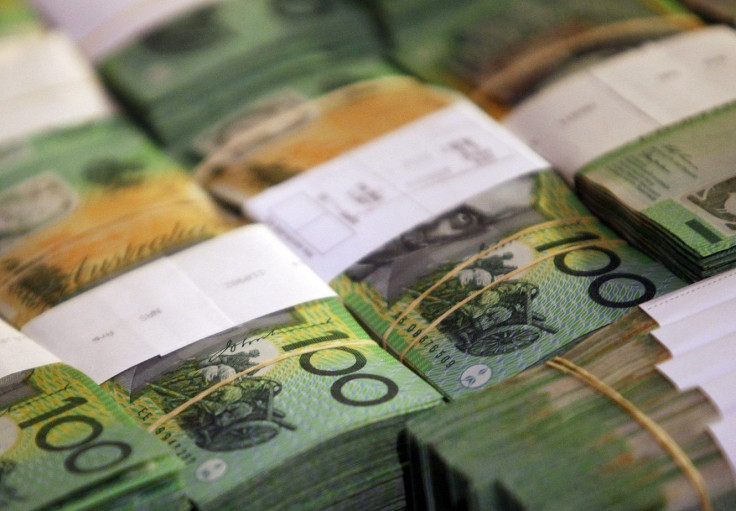Dick Smith and JB Hi-Fi Are Resilient to Market Turmoil

Consumer electronics makers Dick Smith and JB Hi-Fi made it to The Bull's recommended retail stocks on Tuesday after registering strong gains during the first half of the year. Dick Smith has reported a net profit of $25.2 million for 2014-2015 during the first half of this year, representing a 0.8 per cent rise from last year's figures.
According to The Bull, the company is banking on store openings and online sales for extending these gains. JB Hi-Fi, on the other hand, has redeemed itself from a series of declines last year. In October, the company's share prices rose to $19 from below $15.
The Bull's Tony Featherstone said these stocks carry a lot of upside potential despite disappointing economic conditions as of late. "It is hard to get excited about discretionary retail stocks with so many gloomy reports about Australia’s economy. Consumer confidence remains soft despite record-low interest rates, rising household wealth and better-than-expected job news," Featherstone wrote in his column.
He noted that another challenge for the economy is job security. The Westpac-Melbourne Unemployment Expectations Index rose 8.5 per cent in April to its highest peak since December. It's common for households to refrain from spending in order to save more when the job market is unstable.
In Hong Kong, retail stocks took a beating on Monday. The South China Morning Post reports that policy changes that aim to restrict the number of mainland visitors coming to Hong Kong largely contributed to the decline of these stocks. However, not all stocks were affected, with some retail shares continuing to post gains as more investors open accounts to buy Hong Kong stocks.
Retail stocks in the United States, meanwhile, are enjoying healthy gains. Forbes notes that the retail sector in general added a 7.7 percent increase to the S&P 500′s earnings per share growth during last year's final quarter. Macy's and TJX Companies, for example, exceeded their own earnings' expectations, while others cut down on costs and lay off employees to boost their business' bottom line.
In the retail clothing segment, activewear has seen a tremendous growth over the past year and accounted for a huge share of apparel sales in 2014. According to data from The NPD Group, activewear sales reached US$33.7 billion [$43.7 billion], cornering a 16 percent share of the total apparel market.
“Activewear is booming, with sales growth exceeding that of the apparel market as a whole, and it’s because consumers are wearing activewear not only to the gym, in the gym, and from the gym, but they are working out, going out, and even hanging out in activewear,” Marshal Cohen, chief industry analyst at The NPD Group said.
“Consumers are drawn to its comfort and versatility, and the fact that it still makes a fashion statement. Activewear, by nature, also evokes a sense of athleticism and well-being, which only adds to its appeal,” he added.
Among those brands that posted record gains last year was Hanesbrands, Urban Outfitters and Carters, according to Motley Fool. Hanesbrands led the group of stocks with a 20 percent increase in its share price, and an 8 percent rise in net sales for its activewear business. One of Hanesbrands' companies, Champion, saw its sales jump by 20 percent as well last year.
The growth in the space has made it attractive to small underwear firms. Naked Brand Group Inc., a company engaged in the manufacture of men's luxury underwear, has forayed into creating activewear pieces as well. The company's Naked Silver line, for example, is made from a high-performance fabric called X-Static. The fabric has 99.9 percent Pure Silver Bonded woven into its nylon threads, offers anti-odour and anti-bacterial control, and has body temperature regulating capabilities.
"I wore the Naked Silver V-neck T shirt all eight days and it held up great—no smell, breathed well and worked well with my other layers," Bob Silverman, an avid mountain climber, was quoted as saying in the company's investor deck. Silverman ascended Mt. Kilimanjaro in late 2014 with his sons.
Despite rosy gains in the retail sector, S&P Capital IQ's new research note advises against over-purchasing retail stocks, according to Forbes. In its analysis of eight retailers, the market intelligence firm found that most retailers didn't meet their earnings expectations for last year, except for L Brands, which trumped its own forecast by 12.9 percent. L Brands own Victoria's Secret and Bath & Body Works.
“On average, the retailers we analysed beat the initial 2014 guidance by a meagre 1.4 percent as five of the eight companies fell short of management expectations,” said S&P Capital IQ. “Therefore, it’s hard to support the case that managements are being overly conservative with their 2015 guidance.”
Contact the writer: a.lu@ibtimes.com.au





















